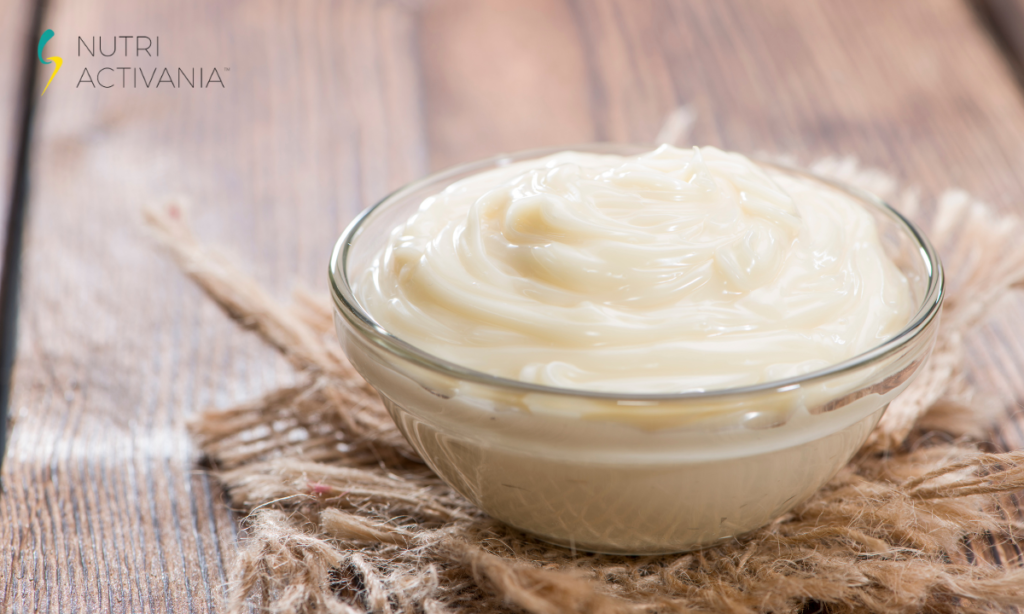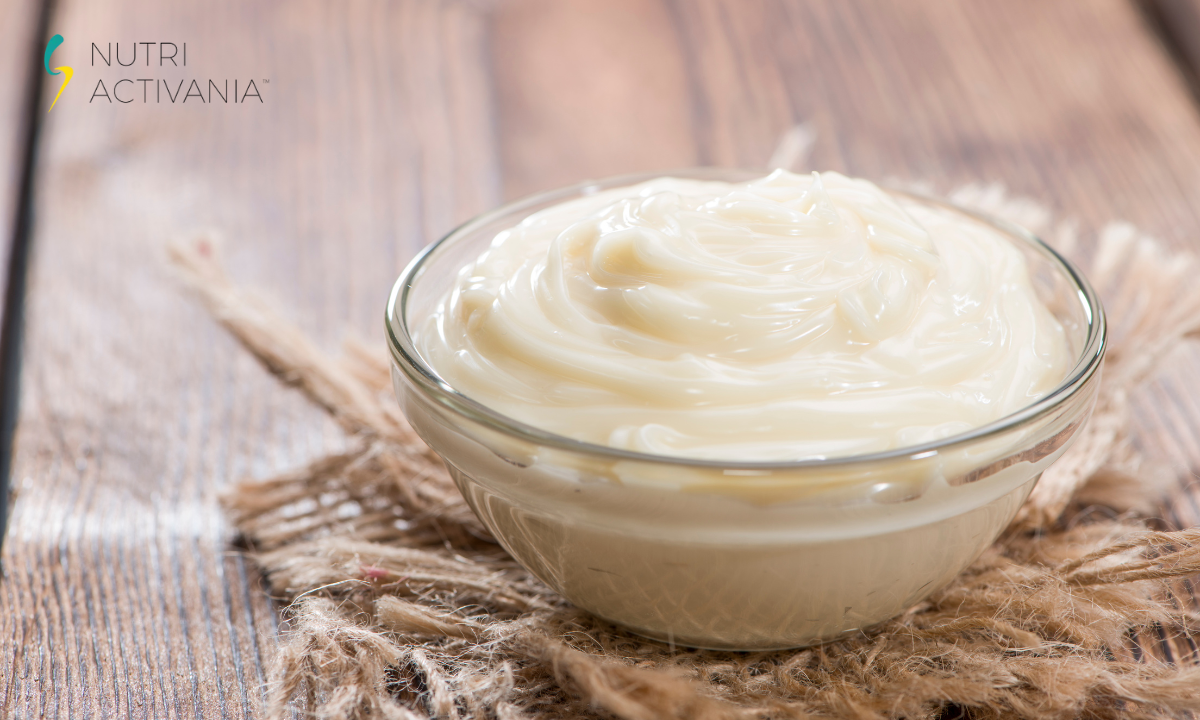Whether mayonnaise good for health, the answer is nuanced—it has some surprising benefits when consumed in moderation, but can be harmful when overused. Made primarily from oil and egg yolks, mayonnaise provides healthy unsaturated fats (when made with olive or avocado oil), vitamin E for immunity and skin health, and helps absorb fat-soluble vitamins A, D, E, and K from other foods—but it’s also calorie-dense (90-100 calories per tablespoon) with high fat content that can lead to weight gain, cholesterol issues, and cardiovascular risks if consumed daily or in large amounts
However, while it may seem like an innocent accompaniment, an eminent dietitian in Delhi Avni Kaul feels it’s important to delve deeper into the potential impacts of mayonnaise on our health and well-being.
Is Mayonnaise Good for Health? Expert Pros & Cons
1. Calorie-dense condiment
Mayonnaise is notorious for its high-calorie count, often leading to weight gain and obesity when consumed excessively. In fact, a tablespoon of mayonnaise good for health contains about 10 grams of fat, which is 15% of the recommended daily intake for an average adult.
2. Unhealthy fat composition
Commercial mayonnaise good for health is often made with vegetable oils high in omega-6 fatty acids, such as soybean oil and corn oil. Omega-6 fatty acids are essential fats that the body needs for normal functioning, but when consumed in excess it can lead to an imbalance in the omega-3 to omega-6 ratio. This imbalance has been linked to an increased risk of various health conditions, including heart diseases, certain cancers, Type 2 diabetes, osteoporosis, and inflammatory and autoimmune disorders like rheumatoid arthritis. The Indian diet, already rich in fried foods and saturated fats from butter and ghee, becomes worse with the addition of mayonnaise
3. Hidden Sodium and Sugar
Commercially available mayonnaise brands often contain hidden additives, such as excess sodium and sugar. These additives are used to enhance flavor, extend shelf life, and improve texture. However, consuming too much sodium can contribute to high blood pressure, while excessive sugar intake can lead to obesity, diabetes, and dental problems. While a tablespoon of regular mayonnaise contains about 1gm of sugar, low-fat good mayonnaise contains about 4gm per tablespoon of sugar.
In India, where traditional meals are already rich in salt and sugar, the addition of mayonnaise can contribute to an unhealthy overload. It is important to be mindful of these hidden additives, especially when using mayonnaise generously in salads, sandwiches, or dip.

4. Artificial Ingredients
Commercial mayonnaise often contains artificial ingredients like calcium disodium EDTA that can disrupt normal cell functions. Trans fats found in some mayo variants increase the risk of heart disease. Artificial flavors and colors may have adverse effects on digestion, immune function, and overall well-being.
5. Foodborne Illness
Mayonnaise contains raw eggs, which can be a potential source of Salmonella bacteria. If the eggs used in the mayonnaise are contaminated or the mayo is left unrefrigerated for too long, it can lead to food poisoning or other foodborne illnesses.
Should you impose a ban on your beloved mayonnaise good or bad?
Not really! Opt for the homemade version by using fresh eggs, and healthy oils like olive or avocado. You can even add a dash of creativity by incorporating herbs, spices, or lemon juice for an extra burst of flavor! As with any food, moderation and informed choices are key to savoring mayonnaise’s delights without compromising our health and well-being.


